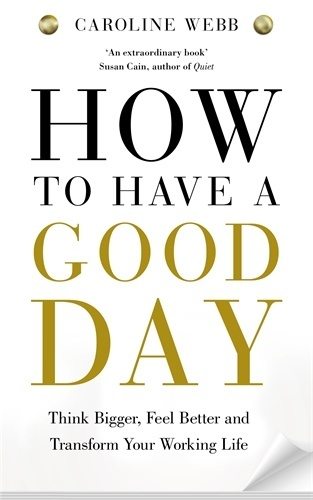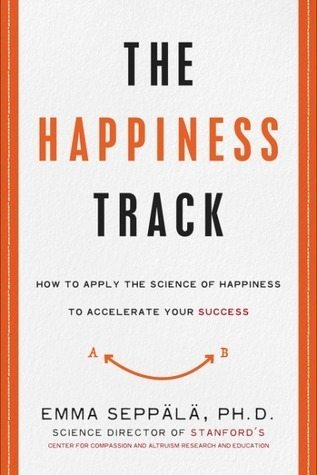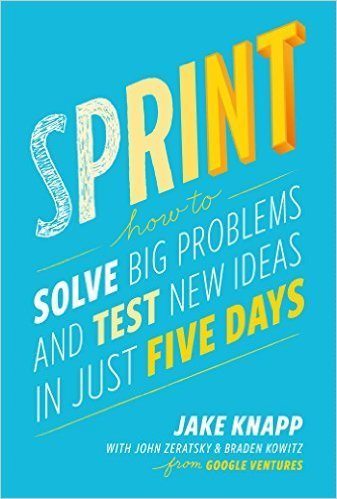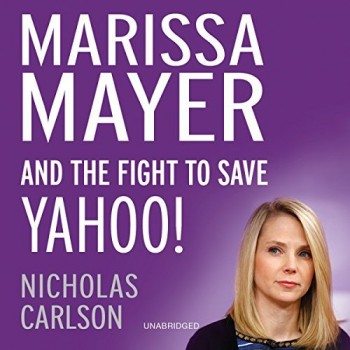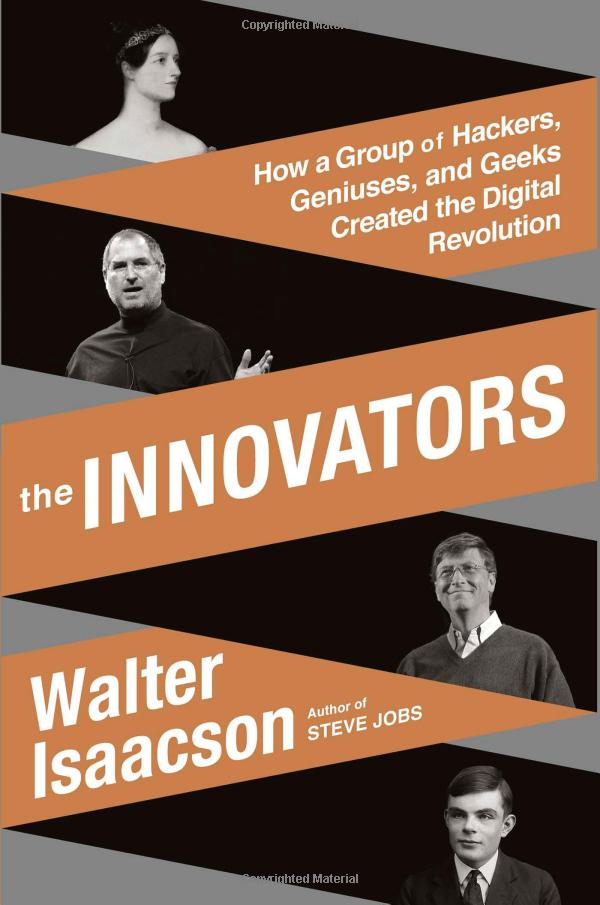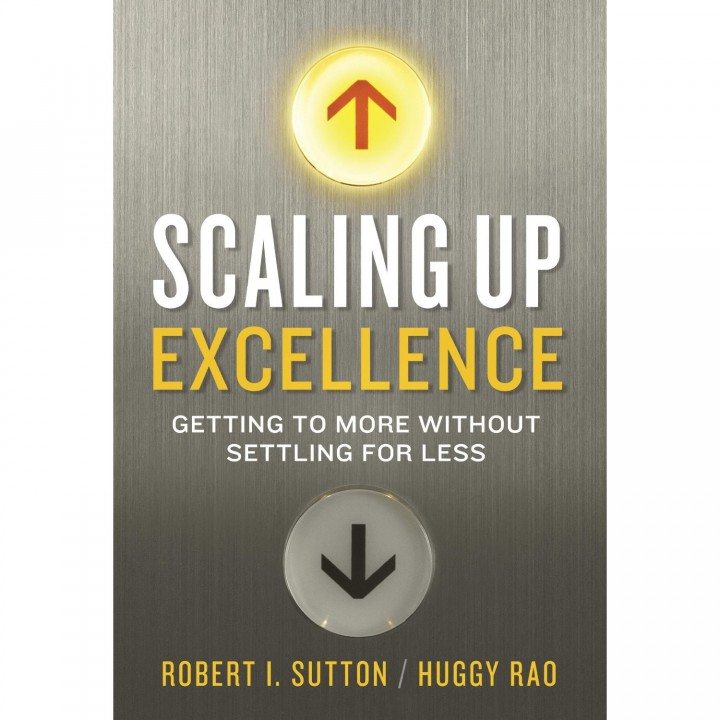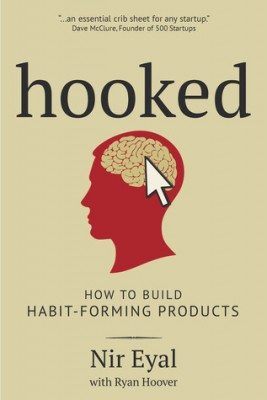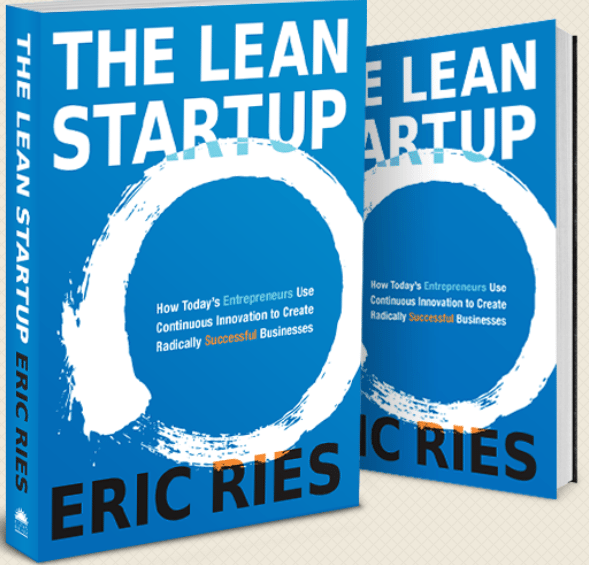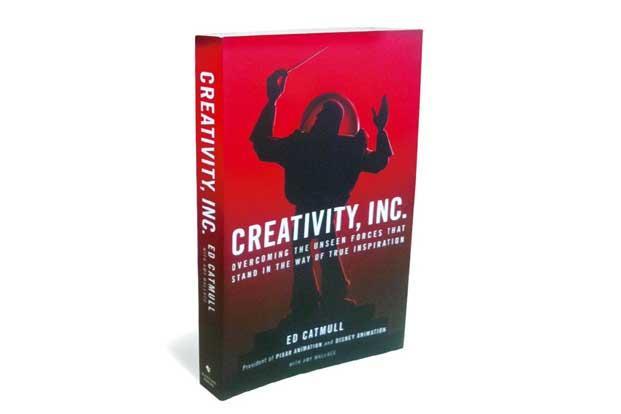One of my favorite activities at the start of the year is to list out books I intend to read – and I do read some of them too eventually! For those of us caught up in the swirl of startups, especially, good books are an anchor for our thoughts, to make sense of this exciting, fast-changing scene.
So here’s my new reading list for the year. They range from all-time greats to new ones catching attention, as well as books to be published later in the year which I’m looking forward to. Do pitch in with your suggestions too in the comments section below. Now, let’s dive in without further ado:
Originals, by Adam Grant
Adam Grant is one of the most highly rated professors at Wharton and author of a bestsellerGive and Take, which shifted the focus from ourselves to our interactions with others as the key to business success. His new book Originals: How Non-Conformists Move the World, which is due out on February 2, promises to tackle an equally fundamental issue for startups and entrepreneurs. Grant uses examples from wide-ranging industries to illustrate the resistance many great new ideas faced when they first surfaced, and makes a case for going against the grain.
One of the oft-repeated criticisms of Asian startup ecosystems is that there are too many copycat businesses and me-too startups. The Wharton professor’s book will give heart to those entrepreneurs who dare to build something unique and valuable that leverages a local advantage for either the domestic or world market. As such, it is the first in my reading list.
Platform Revolution, by Sangeet Paul Choudary, Geoffrey G Parker, and Marshall Van Alstyne
INSEAD entrepreneur-in-residence Sangeet Paul Choudary, who is co-chair of MIT’s Platform Strategy Summit, wrote a readable and insightful book last year on how the new asset-light plug-and-play models of Uber and Airbnb are transforming traditional businesses, leading to a wave of Uber for X and Airbnb for Y startups. But many of these startups bite the dust because they don’t have a full grasp on the fundamentals underpinning the successes of a YouTube or Instagram. His book Platform Scale, reviewed on Tech in Asia, laid out a theoretical framework for building such startups.
Now Sangeet Paul Choudary, in collaboration with MIT research scientists Geoffrey G Parker and Marshall Van Alstyne, is coming out with a second book on March 28 on the same theme. Platform Revolution: How Networked Markets Are Transforming the Economy – and How to Make Them Work for You promises to be a more practical guide. Startups and entrepreneurs will learn strategies to identify markets and monetize networks like a Tinder or SkillShare.
Superbosses, by Sydney Finkelstein
Here’s another management guru’s book due out in February. Sydney Finkelstein is Professor of Management at the Tuck School of Business. His book Superbosses: How Exceptional Leaders Master the Flow of Talent draws on scores of interviews with great leaders in a variety of industries to find out what makes them click. He then distills their experience into takeaways for us to emulate them.
As startups scale up and spread into new geographies, their need for top management talent escalates in parallel. Superbosses not only attract great talent but also launch them into successful careers. These managers in turn play their part in nurturing new talent, encouraging risk-taking, and driving growth for their companies. Seems like a must read for entrepreneurs and managers.
How to Have a Good Day, by Caroline Webb
I’m a sucker for self-help books. From the Dale Carnegie classic How to Win Friends and Influence People to the more recent The Power of Habit, they’ve helped me in everything from social interactions and introspection to productivity. What makes the newer books powerful is that they derive insights from the latest research on the brain and behavior which can be applied in everyday life and work.
Caroline Webb’s book How to Have a Good Day: Harness the Power of Behavioral Science to Transform Your Working Life, which is due out on February 2, seems like a worthy addition to that genre. Caroline used to be a McKinsey partner before she started her own consultancy called Sevenshift. This may be just what stressed out entrepreneurs as well as their employees need for happiness at work.
The Happiness Track: How to Apply the Science of Happiness to Accelerate Your Success, by Emma Seppala
Here’s another book, releasing this month-end, that promises to teach you how to be happy in your pursuit of success. This one’s by psychologist Emma Seppala from Stanford University, who provides insights to reexamine our approach to work and relationships in order to be true to ourselves and find fulfillment along with success. Drawing on the latest findings in cognitive psychology and neuroscience, she shows that being happy is the biggest contributor to productivity. In the process, she demolishes many myths about focus, discipline, and drive.
The Happiness Track: How to Apply the Science of Happiness to Accelerate Your Success is a must read for anybody who feels stressed out juggling with the ever-increasing demands of work and their personal lives – and that I would imagine would include most entrepreneurs.
The Power of Broke, by Daymond John
“This year I’m releasing to you the greatest weapon I have used in business. It is called The Power of Broke and is the reason why I am in the position I am in today,” says Daymond John in a New Year message on his Facebook page. Daymond is the founder of hip hop apparel brand Fubu which has over a quarter of a billion dollars in annual revenue. The story goes that he started out selling home-sewn T-shirts in Queens, New York, and later mortgaged his home to start Fubu. Today, he’s also the co-star of ABC’s Shark Tank TV show in which entrepreneurs pitch for investment.
Daymond draws from his own startup experience, behind-the-scenes Shark Tank tales, and interviews with entrepreneurs for his book: The Power of Broke: How Empty Pockets, a Tight Budget, and a Hunger for Success Can Become Your Greatest Competitive Advantage. With forecasts of a tighter investment scene this year, and a slowdown in the global economy, the practical advice in this book, which is due out on January 19, may be useful.
The Third Wave, by Steve Case
The Third Wave, published in 1980, was part of a trilogy by Alvin Toffler to describe the shift from the industrial age to to the information age. The title of Steve Case’s book The Third Wave: An Entrepreneur’s Vision of the Future, due in April this year, is a hat-tip to the futurism of Alvin Toffler who inspired Steve Case in his youth.
Steve Case is a pioneer of the internet age who orchestrated the merger of AOL and Time Warner to create a media and entertainment behemoth. To him, AOL and other companies represented the first wave of the internet connecting consumers to the internet. The second wave saw the emergence of entities like Google and Facebook who rode on the internet to provide search and social networking. The third wave of the internet, according to Steve Case, will see a transformation of the real world of education, health, transportation, energy, and food in the years ahead. Entrepreneurs will look forward to futuristic insights from this Alvin Toffler of the digital age.
Sprint, by Jake Knapp, John Zeratsky, and Braden Kowitz
Jake Knapp, John Zeratsky, and Braden Kowitz are three partners at Google Ventures. They have helped more than a hundred digital age companies in mobile, ecommerce, fintech, and other fields in getting to grips quickly with fundamental questions like what to focus on and how to make an idea work in real life. Now their book Sprint: How to Solve Big Problems and Test New Ideas in Just Five Days, due for release in March, promises to extend this practical guidance to entrepreneurs everywhere.
The book derives its name from a five-day process called Sprint that Jake designed at Google for testing out new ideas, before he moved to Google Ventures. This approach helps to break problems down to a step-by-step approach which can be tackled with the speed and urgency required in today’s world of tech startups. The Google way seems to have worked well for startups like Medium, Nest, and 23andMe. Now startups around the world can try it.
The Age of Cryptocurrency, by Michael J Casey and Paul Vigna
Two seasoned journalists of the Wall Street Journal demystify bitcoins in The Age of Cryptocurrency: How Bitcoin and the Blockchain Are Challenging the Global Economic Order. Bitcoins have had a roller-coaster ride with exposures of illicit trading, but the authors argue that we can’t afford to ignore cryptocurrency. It has the potential to eliminate the middleman in financial transactions, and as such it may be the currency of a future cyber economy. In any case, bitcoins and their underlying blockchain technology seem worth making sense of, and the WSJ journos appear to have what it takes to do that, judging by the endorsement of venture capitalist Marc Andreessen, who says unequivocally: “This book is a new must-read on bitcoin and cryptocurrency!”
The Industries of the Future, by Alec Ross
Until recently, Alec Ross served as Senior Advisor for Innovation to US secretary of state Hillary Clinton. He traveled to 41 countries in this role over a period of four years, visiting startup hubs and R&D labs to see innovation in practice. The Industries of the Future, being published in February, synthesizes these diverse inputs to look ahead at the opportunities and challenges he sees coming up in the next ten years. “In a world growing more chaotic, Alec Ross is one of those rare people who can see patterns in the chaos and guidance for the road forward,” writes Eric Schmidt, CEO of Google, in an endorsement of the book.
Robotics, genomics, big data, cyber warfare – the book tries to make sense of all the hot new technologies changing our world and how they will impact us in the years ahead.
The Inevitable: Understanding the 12 Technological Forces That Will Shape Our Future, by Kevin Kelly
Here’s another book, releasing a few months later in June, which lays out a roadmap to the future. This one’s by Kevin Kelly, who launched Wired magazine and was its executive editor for the first seven years. Whereas the academic-turned-diplomat Alec Ross’s work deals with hardcore technologies and global forces, Kevin Kelly talks the language of the digital entrepreneur, about the coming age of virtual reality in homes, artificial intelligence in all things, and an on-demand economy. He describes how our everyday interactions with technology – from accessing and sharing to tracking and filtering – will shape the way we work and live.
Wired to Create, by Scott Barry Kaufman and Caroline Gregoire
Let me take you now to a book that released last week, so that you can start reading great new books straightaway. Analyzing creativity seems like a contradiction in terms, but Wired to Create: Unraveling the Mysteries of the Creative Mind appears to be adept at dealing with such contradictions.
Psychologist Scott Barry Kaufman’s research at the University of Pennsylvania focuses on the seeming contradictions that make up a creative mind – mindfulness and daydreaming, openness and sensitivity, solitude and collaboration. The book aims to help you come to terms with your own contradictions to find the creative fount within.
Now, here are some more great books from last year which are already on my shelf. I hope to finish reading them all in 2016. Wish me luck!
Marissa Mayer and the fight to save Yahoo! by Nicholas Carlson
This one’s another must read from last year. Marissa Mayer, who moved from Google to try and turn around Yahoo!, got a lot of attention, including mine. But, as an adaptation from journalist Nicholas Carlson’s book in The New York Times points out, not everyone can be Steve Jobs, who turned Apple around.
Elon Musk: Tesla, SpaceX, and the quest for a fantastic future, by Ashlee Vance
This is another book I’m eager to read. It’s Elon Musk, and not Marissa Mayer, who has a better claim to the mantle of Steve Jobs. I like to read biographies by journalists, and Ashlee Vance is an experienced tech writer for Bloomberg Businessweek – so one can savor a lot of detailed reporting on the making of a visionary.
The Innovators: How a group of hackers, geniuses, and geeks created the digital revolution, by Walter Isaacson
His biography of Steve Jobs was a great read, because it described an era and not just a person. This book does the same, except that it deals with multiple personalities. Walter Isaacson was the managing editor of Time magazine. These days he’s treating us to great biographies.
Scaling up excellence: Getting to more without settling for less, by Robert I Sutton and Huggy (Hayagreeva) Rao
These two professors teach from their own book in a class for entrepreneurs at Stanford University. Since “scaling” is the word that comes up most often in my interactions with VCs, I downloaded this friendly academic book published last year. A glance through it convinces me that I must study it often in order to hold my own in my conversations with VCs and entrepreneurs.
The hard thing about hard things: Building a business when there are no easy answers, by Ben Horowitz
And this one is straight from the VC’s mouth. Ben Horowitz is of course the second half of legendary Silicon Valley VC firm Andreessen Horowitz. He has given a personal, insider’s account of the startup world. Those among you who spend time like me trying to fathom an entrepreneur’s mind may find clues in this book.
Zero to one: Notes on startups, or how to build the future, by Peter Thiel
Here’s another book by a top VC. The most important skill to master, according to Peter Thiel, is learning to think for yourself. Entrepreneurs constantly face choices between doing something better, or doing something new. This co-founder of PayPal, who is now an investor, argues that it is better to go from zero to one, which means building a startup in an entirely new space.
Hooked: How to build habit-forming products, by Nir Eyal
This entrepreneur-turned-educator tries to find patterns in the most successful tech products, from the iPhone to Pinterest. What do they have in common, and how were they built to hook us? The book’s been recommended by everyone, from the Economist to Goodreads. So I’m hooked, and many startup founders will be too if they’re putting out tech products.
The lean startup: How today’s entrepreneurs use continuous innovation to create radically successful businesses, by Eric Ries
This modern classic is on the bookshelf of every VC I know, and it’s found a place on mine too. Eric Ries pioneered the lean startup movement to improve efficiency, minimise cash burn, and reduce the chances of failure. This is especially important to keep in mind for those coming out of large corporations to start up. Budgets are different on this side.
Creativity, Inc.: Overcoming the unseen forces that stand in the way of true inspiration, by Ed Catmull
The man who co-founded Pixar with Steve Jobs shares his experience of building a creative culture. Here’s one nugget: Give a good idea to a mediocre team, and they will screw it up; but give a mediocre idea to a great team, and they will either fix it or come up with something better. The book promises to jog your mind, and the author does have the credentials for it.
Antifragile: Things that gain from disorder, by Nassim Nicholas Taleb
This is the latest book by the author of Black Swan and Fooled by Randomness, who is “Wall Street’s principal dissident,” in the words of Malcolm Gladwell. The thesis here is not new – that we can thrive in chaos. In India, the concept has become known as “jugaad.” But Taleb’s contrarian intellect keeps this on my reading list for a rainy day when I need inspiration.
Innovation and entrepreneurship, by Peter F. Drucker
The guru of all management gurus wrote a book about entrepreneurship way back in the eighties when I was born. I wonder how many of his ideas are still relevant in the digital age. Now that I’m exploring the new world of startups, it might pay to look back at some sage old ideas, and apply them to the current context of the internet and digital life.
Driven to distraction at work: How to focus and be more productive, by Edward M Hallowell
And finally, a book made to order for me. You know how it is: the more you do, the longer your to-do list grows; and the more you juggle, the more likely you are to drop a ball! Edward Hallowell, an expert on ADD (attention deficit disorder), shows us a better way. The doc’s book is a must read for me, and probably many an entrepreneur too.
So there you have it. My picks of 24 great books on startups and entrepreneurs to read this year – that’s two books a month. Doable, right? And who knows, if Hallowell manages to teach me a trick or two, I might get more books under my belt. So don’t forget to make your suggestions below on great books that entrepreneurs must read.
Featured Image credit: Flickr’s Horiavarlan






